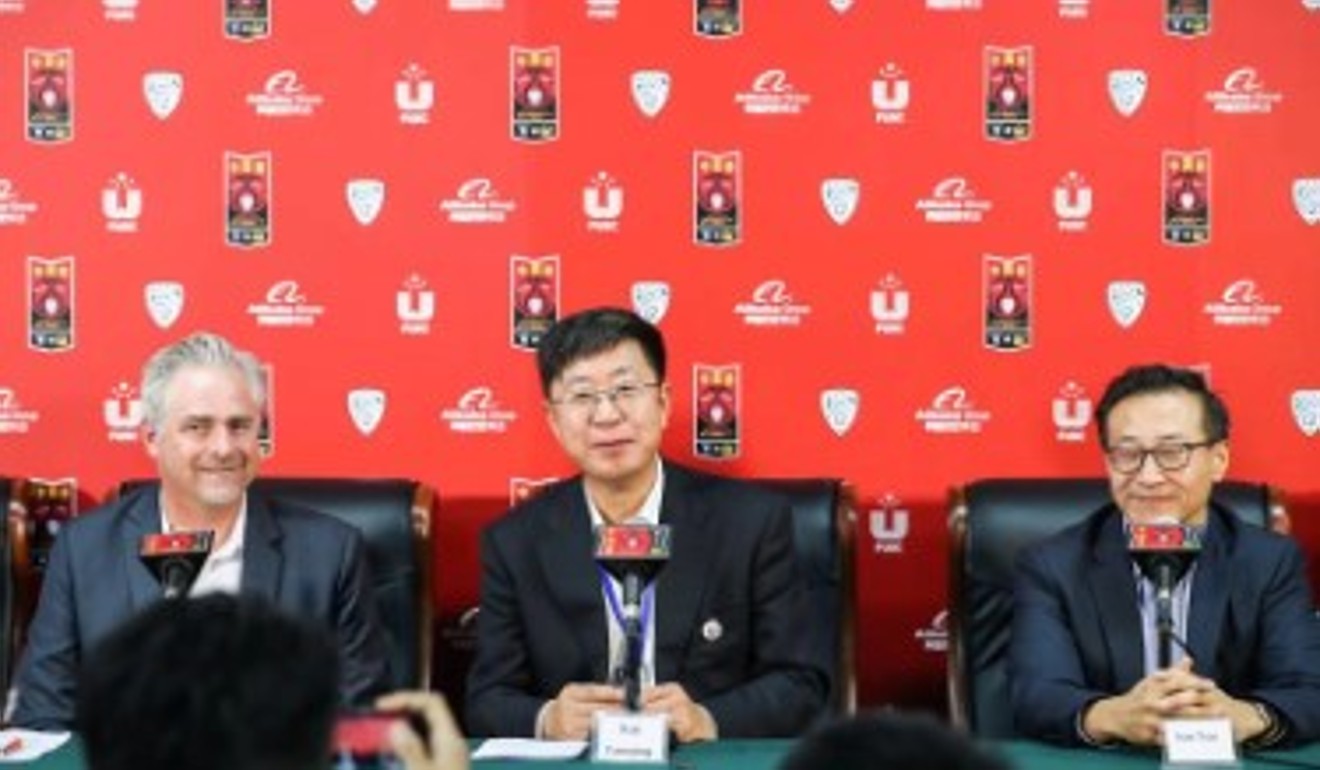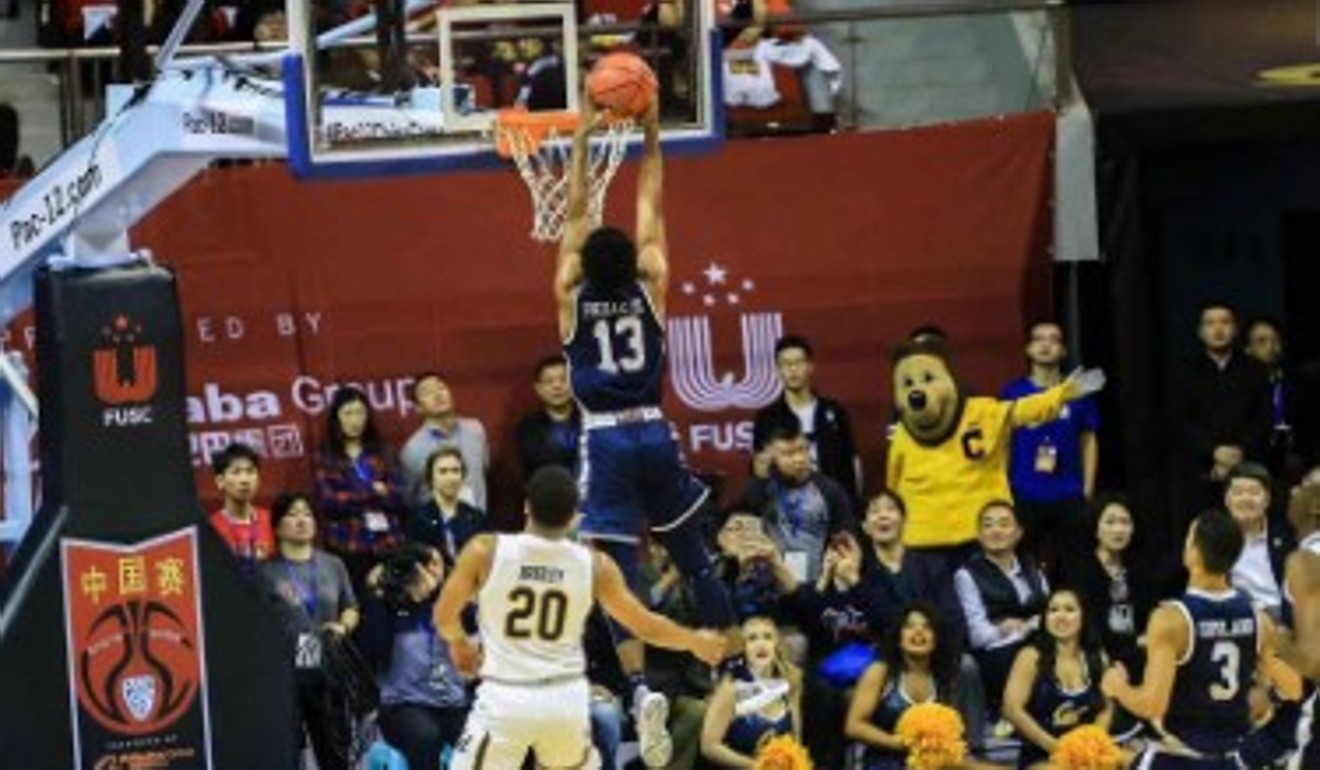
Basketball diplomacy can emulate the Nixon-era ping pong link, says China official as NCAA teams clash in Shanghai
- Xue Yanqing says sport is a good way to strength China-US relations
- Yale beat Cal-Berkeley 76-59 in the season opener at Baoshan Stadium
Basketball has taken the role ping-pong once played in China-US relations, according to the head of Chinese college sports.
“Since the establishment of the China-US relationship, ping pong has played a role and now it is basketball’s time,” said Federation of University Sports in China (FUSC) president Xue Yanqing on Saturday.
Xue was speaking at the press conference ahead of the fourth annual Pac-12 China Game presented by Alibaba Group in Shanghai on Saturday.
Pacific-12 conference college Cal-Berkeley lost 76-59 to Yale of the Ivy League in their season opener at Baoshan Stadium.

“It’s also what Alibaba believes, that’s why we are sitting here together supporting the cause. We believe it’s the best way to strengthen the relationship and friendship between China and the US.”
This is the fourth year of the Alibaba-sponsored Pac-12 China Game, which sees a regular NCAA season game played in Shanghai as part of a wider programme of cultural and education exchange between China and the US.
Alibaba owns the South China Morning Post.
This year other events included the China-US Collegiate Basketball Invitational – where Yale beat a combined Peking University and Soochow University team in Suzhou – and the China-US University Sports & Education Summit.
The Pac-12 China Game was described as “a gift from Jack Ma and Joe Tsai’s gift to the youth of China” by Alisports vice-president David Liu at a Thursday press briefing.

Tsai was one of the men sat next to the FUSC president at the pre-game press conference on Saturday, with the other being Pac-12 deputy commissioner Jamie Zaninovich.
The FSUC head said that the influence of the China-US partnership extends beyond the mainland.
“Taiwan has brought around 30 people to China to watch the games and to learn, and we also have university staff from Macau here to watch the game,” he said.
When asked if there were plans to build cooperation between China and Taiwan, Tsai said through an interpreter: “I believe that is important that we have this cultural exchange between Taiwan and mainland, especially in the campus sports and colleges.
“Alibaba Group is also supporting this cause. I personally have some investments in the sports industry in Taiwan and as Mr Xue mentioned there are also colleges and universities from Macau, Taiwan and Hong Kong who are very interested in participating in the Pac-12 China Games.

“In the future there will definitely be more connections, more exchanges between Taiwan, Macau and the Chinese mainland.”
Xue was concentrating on furthering relations between China and the US, something he said “means a lot” between the two countries.
“I think it’s the best way, actually, to make this collegiate exchange programmes between China and Pac-12.
“We have had a good relationship since the beginning four years ago and even though there is a little bit of tension between China and the US, we are still having a very good time together and we work well together.
“Even better than four years ago, I would say.”
The fifth year of cooperation will be built around the 2019 Pac-12 China Game between Arizona State University and the University of Colorado, which was announced on Saturday.

